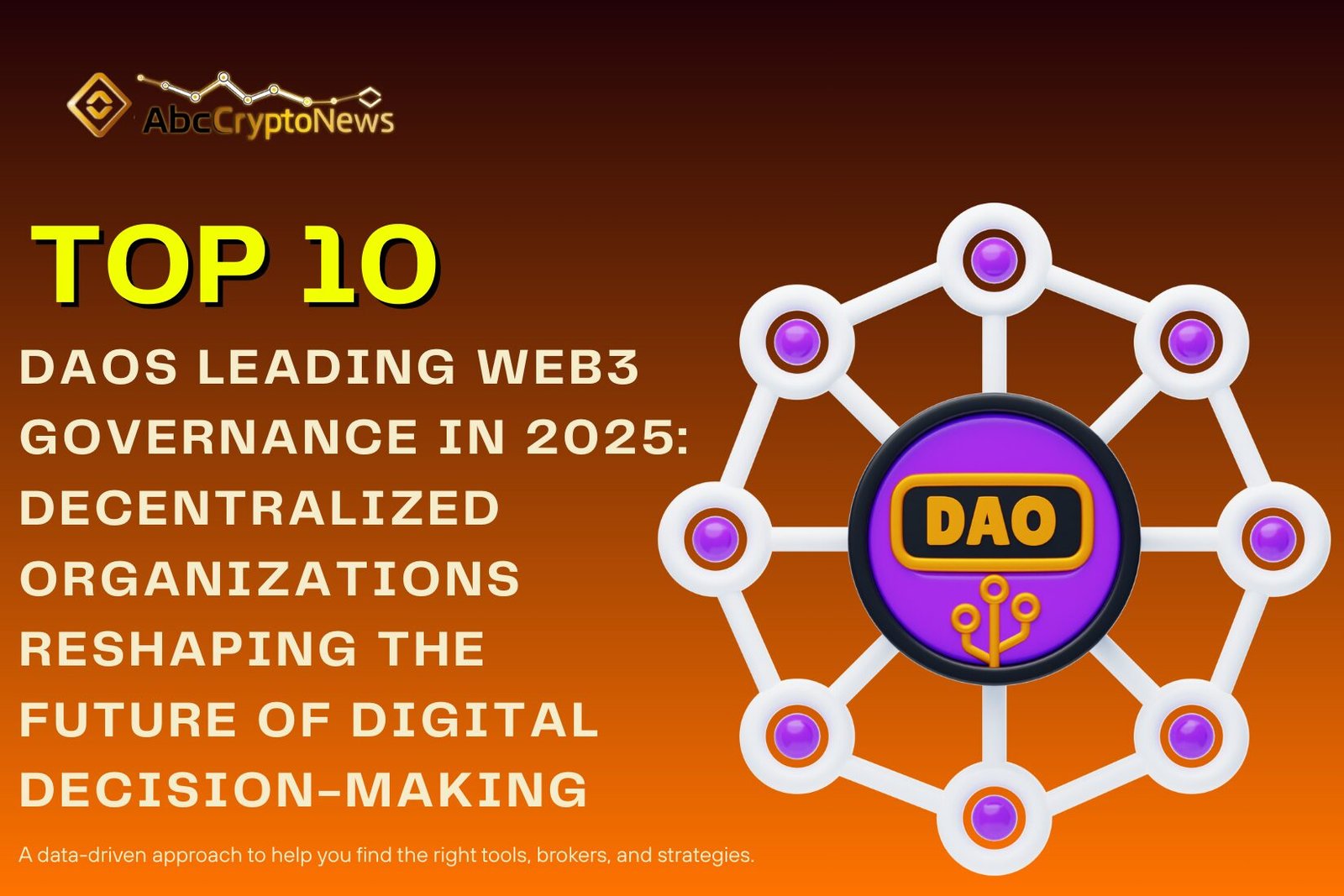Top 10 DAOs Leading Web3 Governance in 2025: Decentralized Organizations Reshaping the Future of Digital Decision-Making
The Top 10 DAOs of 2025 reflect how decentralized autonomous organizations are transforming the way communities coordinate, vote, and manage digital ecosystems. In essence, DAOs are blockchain-native collectives where decision-making is encoded into smart contracts, ensuring rules are transparent and automatically enforced. This new form of governance eliminates much of the reliance on centralized leadership, instead empowering token holders and community members to steer projects collectively.
What makes DAOs particularly vital in 2025 is their role in advancing decentralization, transparency, and inclusivity within Web3. Unlike traditional corporate governance, which often favors closed-door board decisions, DAOs invite participation from anyone who holds governance tokens. This shift has made them central to innovations in DeFi, NFTs, gaming, and infrastructure. From determining interest rates on lending protocols to allocating millions in ecosystem grants, DAOs now manage responsibilities that once required entire institutions. Their growing influence highlights not only their technological promise but also their potential to redefine governance models for digital-first societies.
Top 10 DAOs : Understanding DAO Governance Models
The governance structure of a DAO defines how decisions are made and who holds influence. While they all operate on blockchain rails, the way voting power is distributed differs significantly across organizations.
The most common approach is token-based governance, where voting rights are proportional to the number of governance tokens a member holds. This method is efficient but risks concentrating power in the hands of wealthy “whales.” To counteract this imbalance, some DAOs adopt quadratic voting, which scales influence in a way that gives smaller holders more weight relative to large stakeholders. This model creates fairer outcomes but adds complexity to the voting process.
Another popular method is delegated voting, where community members can assign their votes to trusted representatives. Much like a parliamentary system, this model enables higher participation rates since not everyone has the time or expertise to evaluate every proposal. Finally, some DAOs experiment with hybrid models that mix on-chain voting with off-chain deliberation. These often include forums, councils, or multi-sig committees that refine proposals before they reach the blockchain.
Each system carries trade-offs. Token-based governance is simple but prone to oligarchy. Quadratic voting encourages diversity but is harder to scale. Delegated voting solves voter apathy but depends on accountable delegates. Hybrid models balance transparency with pragmatism, though they sometimes blur the line between decentralization and centralized oversight. Understanding these models is key to seeing why different DAOs thrive under different governance frameworks.
Top 10 DAOs : Benefits of DAOs in Web3 Governance
DAOs are celebrated for their ability to make governance transparent, auditable, and resistant to corruption. Since decisions are executed via smart contracts, the rules are enforced automatically without intermediaries. Every proposal, vote, and transaction is recorded on the blockchain, giving members confidence in the integrity of the process.
Another defining benefit is global accessibility. Participation is not limited by borders or citizenship. Anyone with internet access and a digital wallet can join discussions, cast votes, or even submit proposals. This inclusivity allows DAOs to harness perspectives that span continents and cultures, creating governance systems that are more representative than many traditional institutions.
Efficiency is another strength. Smart contracts can automate everything from treasury distributions to protocol upgrades, reducing bureaucratic overhead. Where traditional organizations might take weeks or months to implement a decision, DAOs can act in days—or sometimes instantly once a vote is finalized.
Finally, DAOs empower communities by aligning incentives. Contributors earn governance tokens through participation, meaning those who actively support a project’s growth gain more influence in shaping its direction. This dynamic creates a loop where community members are both stakeholders and decision-makers, reinforcing accountability and long-term sustainability.
Top 10 DAOs : Key Challenges Facing DAOs in 2025
Despite their progress, DAOs continue to face hurdles. Security vulnerabilities remain the most pressing risk. Smart contract exploits and governance attacks can drain treasuries worth millions, as seen in high-profile incidents in previous years. The fact that DAOs manage large pools of funds makes them prime targets for hackers.
Another challenge is voter apathy, a phenomenon where the majority of token holders abstain from participating in governance. This often leaves decisions in the hands of a small minority, undermining the ideal of broad-based community participation. When combined with the influence of whales, this can lead to subtle centralization—even within decentralized organizations.
Scalability also matters. On-chain voting can be expensive when network congestion drives up transaction costs. Smaller participants, especially in developing regions, may find these barriers too high, limiting their ability to contribute.
Beyond technology, legal and regulatory uncertainty looms large. Some jurisdictions are beginning to recognize DAOs as legal entities, but others treat them as unregulated collectives. This lack of clarity affects taxation, liability, and compliance, leaving DAO members vulnerable to legal risks. The way global regulators handle DAOs over the next few years will determine how widely they can expand beyond crypto-native communities.
Top 10 DAOs Leading Web3 Governance in 2025
1. Uniswap DAO
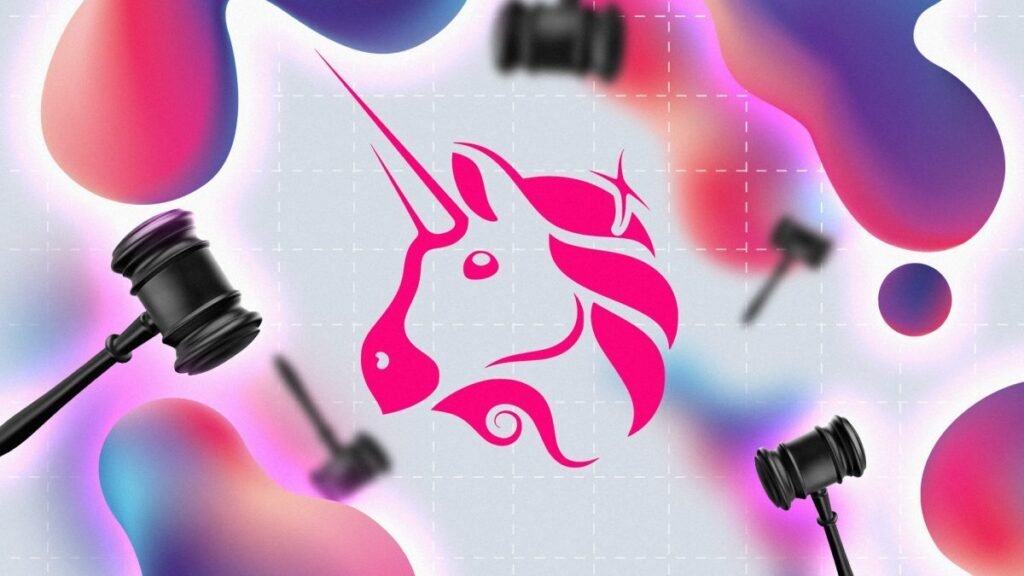
Source: The Block
As the world’s largest decentralized exchange, Uniswap DAO governs everything from liquidity incentives to fee structures. Its community-driven proposals ensure that liquidity providers and traders shape the evolution of the platform. By 2025, Uniswap has cemented its reputation as a cornerstone of DeFi governance, influencing not just exchange mechanics but also setting standards for community engagement in the DeFi space.
2. MakerDAO
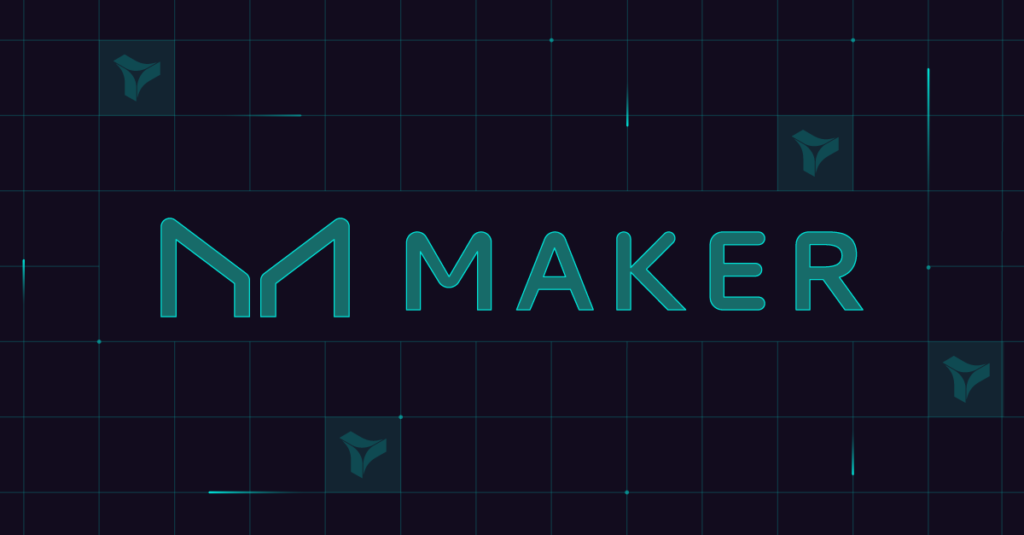
Source: Tenderly
MakerDAO continues to play a vital role in stabilizing the DeFi ecosystem by managing DAI, the most widely used decentralized stablecoin. Its governance model allows members to decide on collateral types, risk parameters, and stability fees. In times of market turbulence, these decisions are critical to maintaining DAI’s peg. By 2025, MakerDAO stands as a pillar of financial resilience, providing a decentralized alternative to traditional central banks.
3. Aave DAO
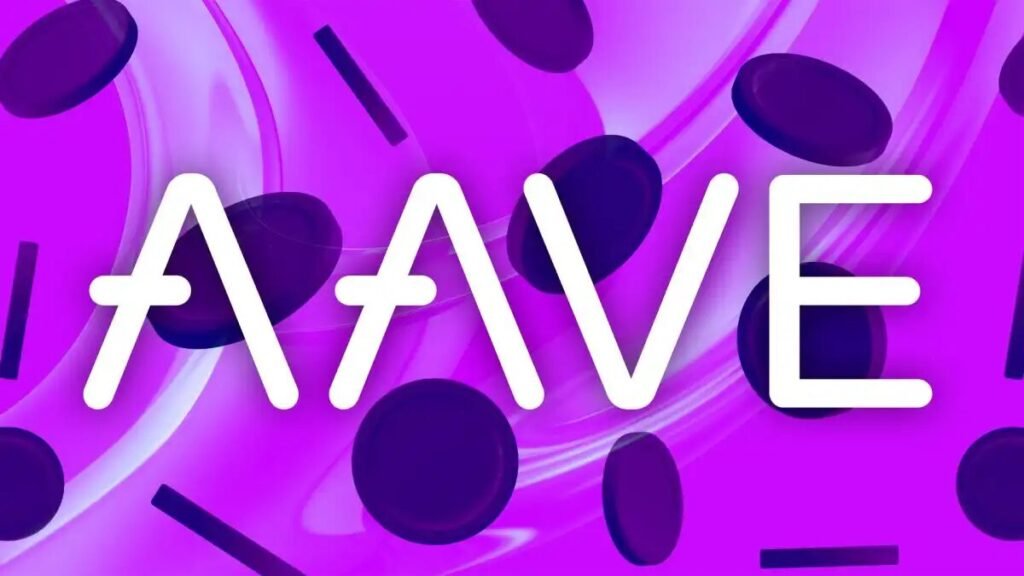
Source: THE BLOCK
Known for its innovation in lending markets, Aave DAO allows communities to decide on liquidity pools, safety modules, and multi-chain deployments. Its governance discussions often focus on balancing risk with growth, especially as Aave expands into institutional partnerships. By 2025, it exemplifies how DAOs can evolve from crypto-native tools into global financial platforms with broad user bases.
4. Compound DAO
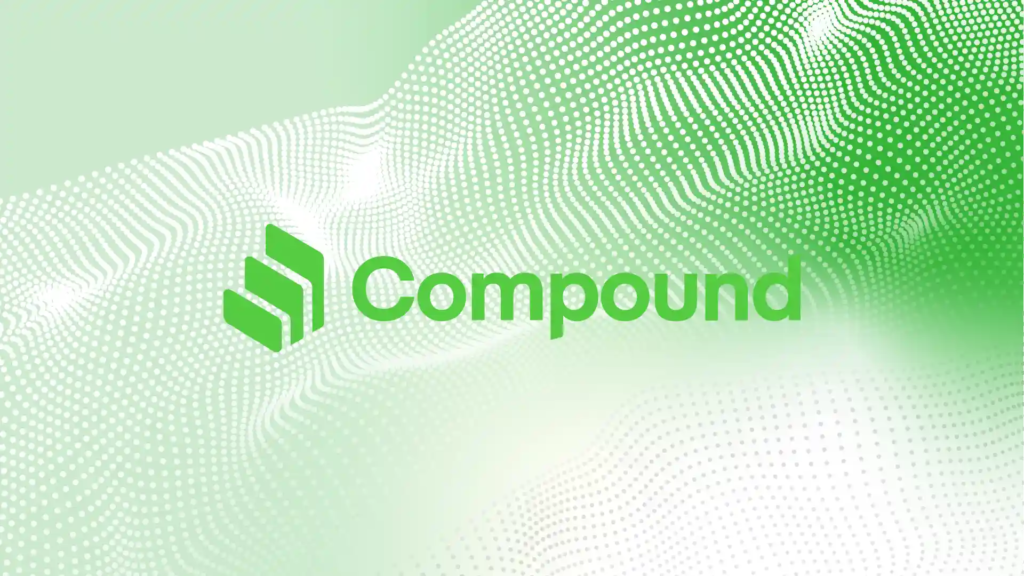
Source: CCN
Compound DAO oversees one of the most widely used decentralized money markets. Its governance emphasizes protocol upgrades, interest rate models, and collateral integration. As traditional finance begins exploring DeFi integrations, Compound’s governance ensures that the protocol remains adaptive and competitive. In 2025, it illustrates how DAOs can bridge institutional finance with decentralized infrastructure.
5. Curve DAO
Specializing in stablecoin and liquidity pool swaps, Curve DAO operates under a unique vote-escrow (veCRV) system. This model incentivizes long-term commitment by rewarding participants who lock tokens for extended periods. By 2025, Curve’s governance framework has become a case study in how DAOs can balance short-term incentives with sustainable growth.
6. Arbitrum DAO
As the most widely adopted Layer-2 solution on Ethereum, Arbitrum DAO governs decisions around protocol upgrades, incentive programs, and treasury allocations. With scaling solutions crucial for Ethereum’s future, Arbitrum DAO’s governance is not just about one project—it’s about the future efficiency of the entire Ethereum ecosystem.
7. ENS DAO
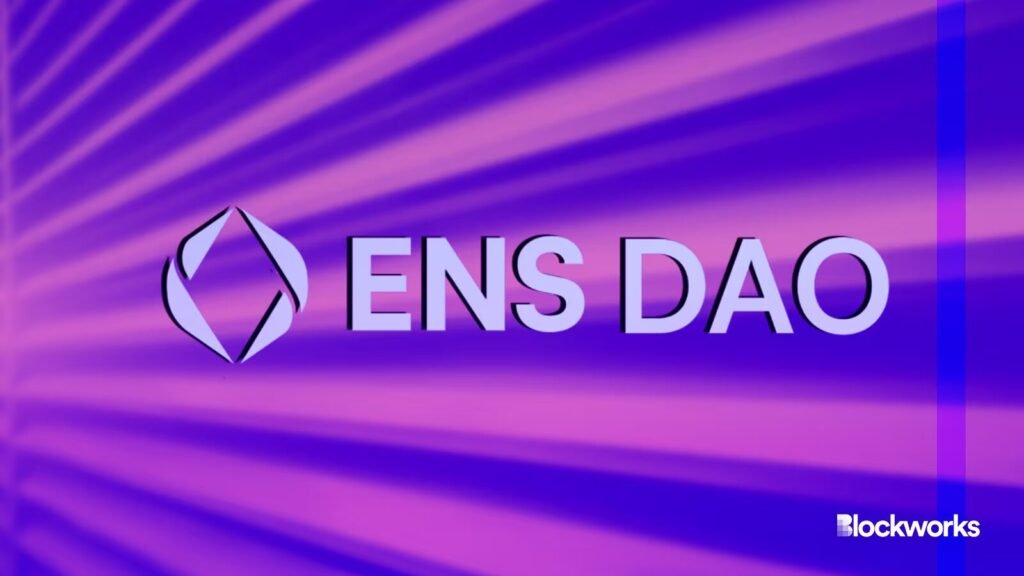
Source: Blockwords
The Ethereum Name Service DAO governs the decentralized naming system that underpins identity in Web3. From pricing domain names to funding development, its governance ensures that blockchain domains remain censorship-resistant and accessible. By 2025, ENS DAO has become a custodian of digital identity, influencing how millions interact with Web3.
8. Gitcoin DAO
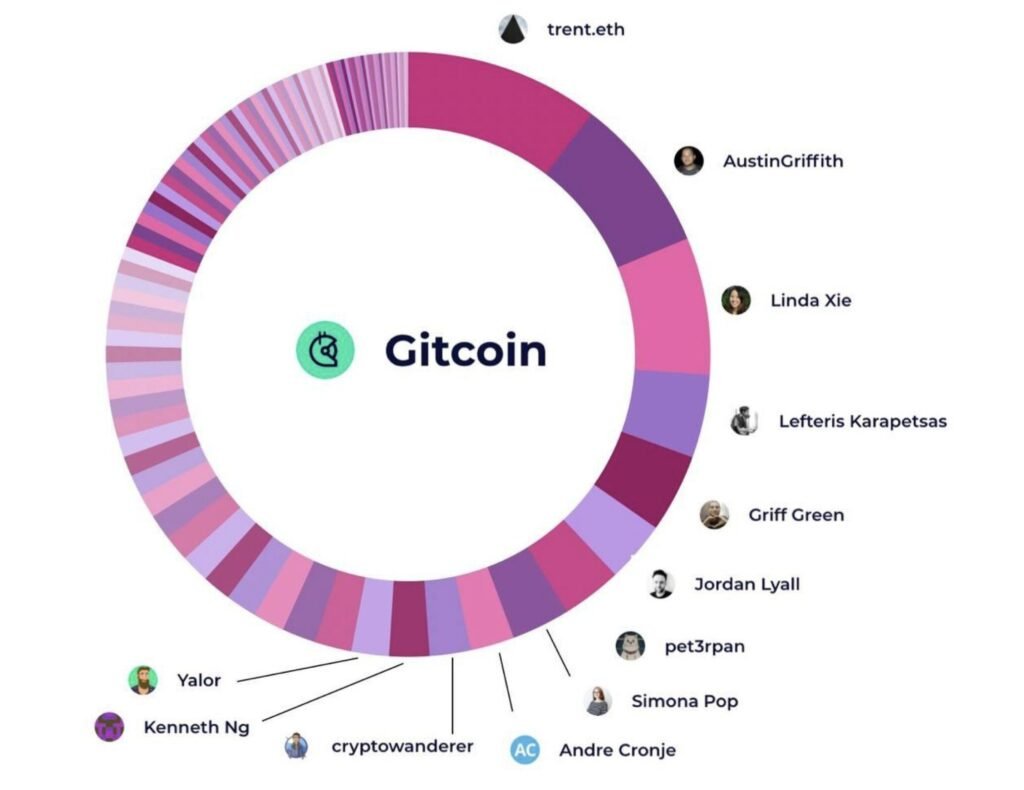
Source: gitcoin
Gitcoin DAO is central to funding open-source projects through quadratic funding. Its governance allocates resources to developers, researchers, and builders who contribute to the public goods that Web3 relies on. In 2025, Gitcoin is a prime example of how DAOs can fund and sustain innovation at scale, far beyond what traditional venture funding models achieve.
9. Decentraland DAO

Source: Crypto ninjas
As a metaverse pioneer, Decentraland DAO manages decisions about land policies, wearable approvals, and in-world experiences. Its governance serves as a live experiment in how digital societies can self-govern. By 2025, with virtual spaces becoming more mainstream, Decentraland DAO represents the frontier of digital urban planning and community rule-making.
10. Optimism Collective
The Optimism Collective, structured like an evolved DAO, governs through retroactive public goods funding. Rather than rewarding speculative projects, it funds initiatives that demonstrate measurable community value. By 2025, it has become a trailblazer for impact-driven governance, inspiring other DAOs to adopt similar approaches to align profit with purpose.
Case Studies: Top 10 DAOs – DAO Governance in Action
History offers both triumphs and cautionary tales for DAOs. Successful examples include Uniswap DAO’s treasury allocations, which funded developer grants and strengthened ecosystem growth. Gitcoin’s quadratic funding rounds have similarly channeled millions into critical open-source projects, proving the effectiveness of decentralized philanthropy.
However, failures like The DAO hack in 2016 remind us of the vulnerabilities. Governance manipulation incidents, where whales colluded to pass self-serving proposals, also highlight risks. These experiences underline the importance of audits, active communities, and strong checks and balances. By 2025, DAOs have grown more resilient, but the lessons of past crises remain deeply influential in shaping best practices.
Future Trends of DAOs in Web3 Governance
Looking forward, DAOs are poised to integrate AI-powered decision-making tools to help communities evaluate complex proposals. Cross-chain DAOs are emerging, enabling governance across multiple blockchains and reducing fragmentation. Legal frameworks are beginning to take shape as governments recognize DAOs as legal entities in some jurisdictions, paving the way for more mainstream adoption.
Beyond crypto, DAOs could expand into real-world applications, from community-driven charities to political initiatives and even corporate structures. Their potential to transform how collective decisions are made is only beginning to unfold, and 2025 may prove to be the turning point for DAO adoption beyond blockchain communities.
Conclusion – Top 10 DAOs
The Top 10 DAOs of 2025 highlight the growing maturity of decentralized governance. From financial protocols like MakerDAO and Aave to cultural hubs like Decentraland and infrastructure stewards like ENS, these DAOs illustrate the breadth of Web3’s transformation.
DAOs are not without challenges, but their progress shows that decentralized organizations are redefining how communities coordinate, allocate resources, and make decisions. As they gain recognition and expand into new use cases, DAOs could become one of the most influential governance models of the digital era. The future of Web3—and perhaps governance itself—may well be written in the code of these autonomous organizations.

